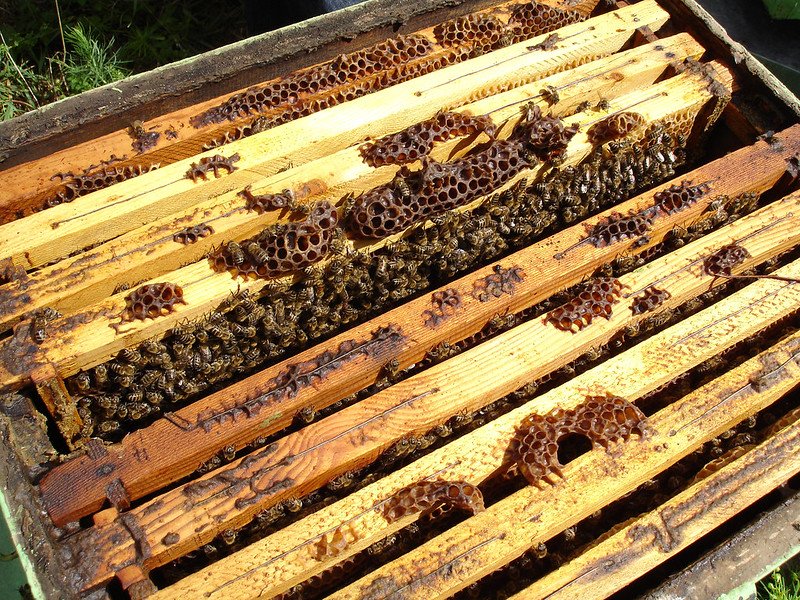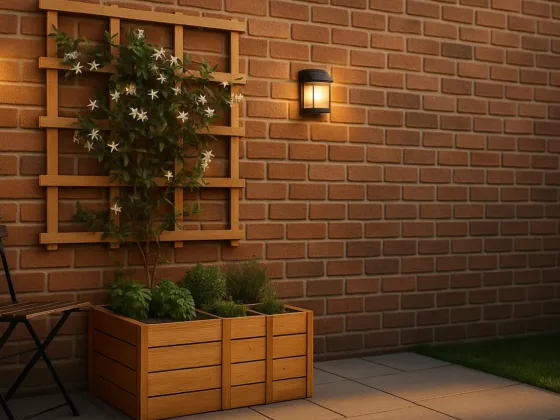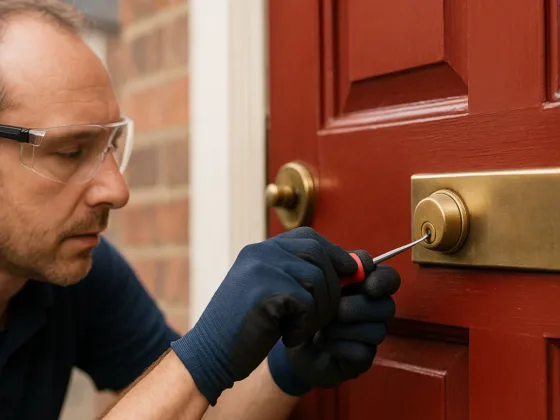Table of Contents Show
Honey bees are important for the pollination of many fruit and vegetable crops. They help out diligently in the allotment garden and also provide tasty honey. Keeping these fascinating animals can be easily combined with gardening.

What Are the Advantages of Bees in The Garden?
Like wild bees, honey bees are pollinators for fruit and vegetables in the garden. Whether apple trees, strawberries, cucumbers, or pumpkins, without the hard-working insects the harvest would be smaller or fail completely.
Bees can also be easily observed as they tirelessly search for nectar and pollen. Their behavior and way of life are fascinating. And of course, they provide honey and beeswax.
I Want to Keep Bees. What Do I Have To Prepare For?
Keeping honey bees in the garden requires a lot of knowledge and experience, says beekeeper Horst Jager-Mang from Weimar. “It’s a science in itself,” says the expert. Beginners should therefore bring a lot of patience and not be discouraged by failures.
Beekeeping is also time-consuming if you want the little prickly ones to stay healthy and make tasty honey. “When I extract honey, it sometimes takes 12 to 14 hours,” says the beekeeper.
It is also advisable to talk to the garden neighbors about the wish. Keeping bees in allotment gardens is not strictly prohibited. On the contrary, some clubs even encourage them.
However, it is worth asking your own club and your neighbors in the garden whether there is anything against keeping them – in the sense of considerate coexistence.
Read Also:
I Wish for Bees. What’s The Best Way to Start?
If you have a beekeeper in your circle of acquaintances, you can first ask for a hive and initial help with the care. Beginners can also contact a beekeeping association in the area or, best of all, become a member right away.
Experienced beekeepers usually help with the bees in the first few months. A hive from a local beekeeper costs about 100 to 120 euros in early summer, reports Horst Jager-Mang.
Some beekeeping associations also organize taster courses, honey markets, or open days to get those interested in the hobby interested.
When Is a Good Time to Start Beekeeping?
In early summer, many beekeepers multiply their colonies and then sell queens and associated bee colonies. May and June are therefore good months to get honey bees. Here you can find more information about getting started in beekeeping.
Do I Have to Register My Bees?
Yes. Bee colonies must be registered with the animal disease fund of the respective federal state via the competent veterinary office. American foulbrood is a dreaded reportable disease that can affect honey bees.
Where the disease occurs, bee colonies must be destroyed and other beekeepers warned of the danger. Affected beekeepers receive financial compensation if American foulbrood is detected and they lose bee colonies as a result.
Where Is a Favourable Location?
The hive should face south. The location needs five to six hours of sun a day.
A slight slope is beneficial so that cold air can escape. Trees, hedges or buildings as windbreaks on the north and east sides of the hive are also recommended. Under no circumstances should the beehive be in the shade.
“A location is good where you feel comfortable with the bees,” summarizes Jager-Mang. By the way: bees are not interested in the cake on the garden table. Sweet treats only attract wasps and flies.
According to Jager-Mang, an insect hotel for wild bees in the same garden does not bother either.
What About Children and Dogs in The Allotment Garden?
Honey bees only sting when they see themselves or their hive imminently threatened. If you accidentally step on a bee or an animal gets lost in your pant leg, it can sting you.
A calm, cautious demeanor and a feel for the bees will help. Experienced beekeepers hear from the buzzing of the bees whether the animals are relaxed or stressed.
In early summer, Horst Jager-Mang even works with the bees without protective clothing because they are so busy looking for food.
If there is a tendency for thunderstorms or if the bees have had to starve, they react rather aggressively. Also, be careful with young or excited dogs: if they jump around barking right in front of the stick, they risk being bitten.
Dog owners should therefore keep very restless animals away from the beehive. Children and grandchildren can be educated about how to behave in a way that doesn’t make the bees feel threatened.
How Can I Help Bees in The Allotment Garden?
“Bees fly for food,” says the experienced beekeeper. In other words, where there are lush flowers, there are countless bees – for example when the linden trees are in bloom. Anyone who wants to help bees, therefore, relies on richly flowering plants.
Especially in mid and late summer, bees sometimes find too little food for weeks. Flowering herbs and Liliaceae, autumn asters, and dahlias help the animals. “When mowing the lawn, deliberately leave islands where clover and dandelions can bloom,” advises Horst Jager-Mang.
The grass in the garden should be cut late in the first place. He only cuts out the dandelions when the yellow blossoms slowly become dandelions.
Perennials for Insects – The Buffet Is Open
Everyone is talking about forage plants for bees. Hoverflies, beetles, wasps and butterflies are also in search of food. They are also pollinators in the garden. Many insects fly on these perennials.









